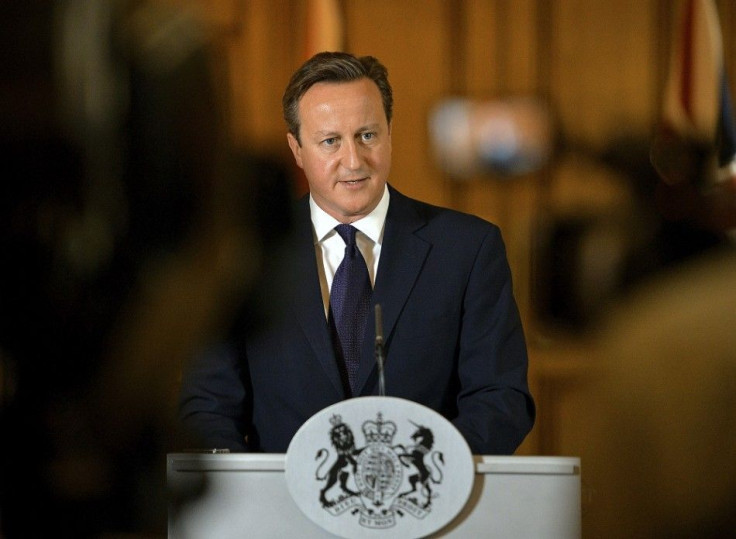UK Will Not Send Lethal Arms to Ukraine, Says Senior Minister

Even as the United States and European Union are seeking ways to exert more pressure on Russia to end the escalating tension in Ukraine, a senior British minister ruled out the possibility of the U.K. sending any lethal arms to Ukraine government forces.
William Hague, a former foreign secretary and a senior minister, who is considered close to Prime Minister David Cameron, said governments should think "very, very carefully" about such a move. Already, Foreign Secretary Philip Hammond has made clear that Britain is currently planning to supply "lethal aid" to Ukraine though it reserves the "right to keep this position under review.”
The AFP reports that though Britain has been sending non-lethal equipment such as light armoured personnel carriers to Ukraine, no lethal weapon supply has happened so far. Hague told BBC television, "We are not planning, as the UK, to send arms to Ukraine. It has not been our approach in any of the conflicts in recent years to send arms into those conflicts.”
Diplomatic Solution
Rejecting the potential for any armed conflict, Hague called for a "diplomatic solution" as the way forward and warned: “You have to think very, very carefully” before sending in additional arms to a conflict, he said. The opponents of sending arms to Ukraine point out that such a move would lead to a proxy war between Russia and the West. President Barack Obama has stated that the U.S. has not made a decision on sending lethal weapons to Ukraine, where the government forces are fighting the allegedly pro-Russian separatists.
Kerry Mulls New Sanctions
Meanwhile, John Kerry, the U.S. Secretary of State warned Russia of "serious sanctions." He said in London that breaches of the ceasefire brokered in Minsk, are becoming recurrent. The West has dismissed Russia's repeated claims that it is not providing any military support to the East Ukraine separatists.
Meanwhile, NATO officials expressed the concern that Russia’s aggressive tactics in Ukraine are not something going to be confined to Ukraine alone as the countries bordering Ukraine were once part of the Soviet Union or its satellite states. Breitbart News reports the speech of General Sir Adrian Bradshaw, NATO’s Deputy commander of forces in Europe. He told the Royal United Services Institute on Feb. 21 that Moscow’s ambitions are “an obvious existential threat to our whole being.”
Russia Slams EU
Meanwhile, Russia slammed European Union's call to India for mediation on Ukraine crisis and dubbed the EU envoy's recent remarks on that issue as a case of “sheer duplicity and sly distortion of the core reasons which led to the intra-Ukrainian conflict.”
The Russian Embassy in India in a statement said it was not the people of Donetsk and Lugansk who unleashed the fratricidal war. It charged the Kiev authorities of slapping an all-out war against its own people, instead of launching a nationwide dialogue and implementing the core principles of the Minsk Agreements for constitutional reform, decentralisation and self-rule for Eastern regions. It accused Kiev of orchestrating a violent coup d'etat in February 2014 with the tacit support of the U.S. and EU, reports Economic Times.
(For feedback/comments, contact the writer at kalyanaussie@gmail.com)





















